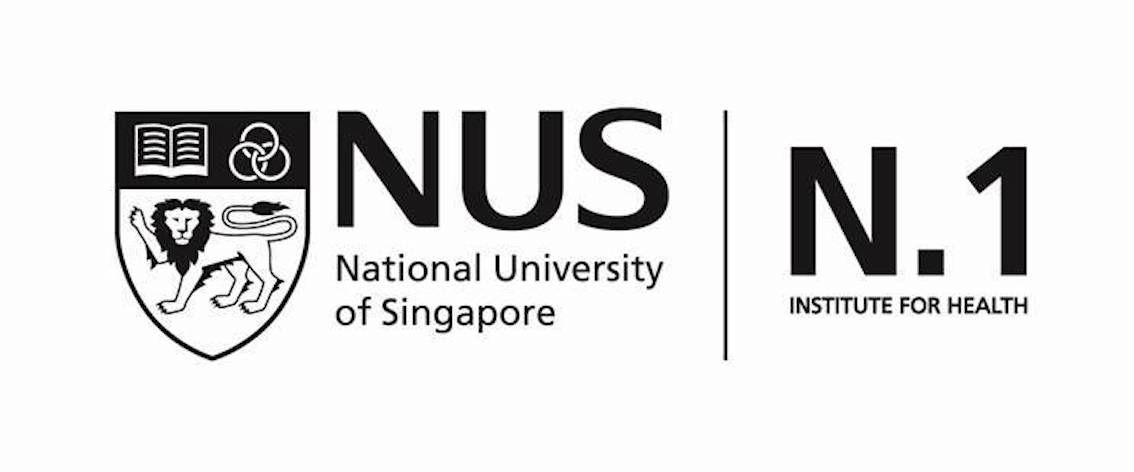N.1 CLINICAL PROGRAM
N.1 is already innovating in the clinic. Our Institute-driven discoveries have led to multiple ongoing and approved first-in-human interventional studies.
Artificial Intelligence
Work from Prof. Dean Ho’s N.1 Labs has harnessed CURATE.AI to markedly improve the efficacy and safety of clinical/in-human combination therapy. CURATE.AI and additional digital health strategies developed by Prof. Ho’s team will be harnessed to realise novel digital therapeutics platforms.
Find out more:
A. Pantuck*, D.K. Lee, T. Kee, P. Wang, S. Lakhotia, M. Silverman, C. Mathis, A. Drakaki, A.S. Belldegrun, C.M. Ho*, and D. Ho*, Modulating BET Bromodomain Inhibitor ZEN‐3694 and Enzalutamide Combination Dosing in a Metastatic Prostate Cancer Patient Using CURATE.AI, an Artificial Intelligence Platform, Advanced Therapeutics, DOI: 10.1002/adtp.201800104, 2018. (Full text)
Read the accompanying news stories:
Digital Therapeutics
Prof. Ho’s N.1 Labs team will commence a collaboration with the team of A/Prof. Mehul Motani to develop novel digital therapeutics platforms, as well as enhance patient adherence to the use of digital health applications.
From a CURATE.AI N-of-1 clinical case report in Advanced Therapeutics, 2018, Cover Article
“In combination therapy, achieving drug synergy and global optimization are two very different outcomes. During the course of combination therapy, synergy can convert to antagonism in the same patient, and vice versa. This is a challenge that has confronted the fields of drug development, precision/personalized medicine, and other areas. We have successfully utilized CURATE.AI to overcome these major challenges, which resulted in markedly enhanced clinical outcomes compared to the standard of care. ”
— D. Ho Laboratory
Cognition and Translational Imaging
N.1 Investigator Chris Asplund is pioneering advances in attention, cognition, and training, among other areas. His work is paving the way for the development of regimens that can enhance training outcomes,
Check out a recent paper from Chris Asplund (Acknowledgement: Home page image provided by Asplund Team).
“I explore our amazing cognitive abilities and how they are realized in the brain. To do so, I conduct behavioral experiments, build computational models, and employ functional neuroimaging, seeking to understand attention, working memory, reasoning, and consciousness.”
N.1 Investigator Thomas Yeo has made internationally-recognized contributions in the application of imaging for connectivity and parcellation analysis, defining the role of brain networks as foundations for cognition, as well as the impact that mental disorders can impart on these networks.
Check out a recent paper from Thomas Yeo
Theranostic Devices
Dr. Raghav Sundar has successfully initiated a clinical trial to validate a powerful new cryocompression-based approach to address chemotherapy-induced peripheral neuropathy (CIPN). Using an extremity-mounted theranostic platform, initial results have demonstrated that this approach can markedly improve treatment outcomes for CIPN. This strategy may ultimately play a key role in improving overall chemotherapy outcomes as well.
Check out Dr. Sundar’s recent presentation at ASCO.
Clinical trial recruitment information:
Robotics and Cognitive Engineering
Prof. Nitish Thakor and Prof. Anastasios (Tassos) Bezerianos are globally-recognized experts in translational neuroengineering. They have made major contributions to the development of technologies that will define the next generation of neuroprosthetics driven by the brain-machine interface, as well as novel strategies to address the major neurological diseases of current and future generation
Hongtao Wang, Andrei Dragomir, Nida Itrat Abbasi, Junhua Li, Nitish V. Thakor, Anastasios Bezerianos, A novel real-time driving fatigue detection system based on wireless dry EEG, 12, 365-376, 2018 (full text).
Dragomir, A., Vrahatis, A., & Bezerianos Anastasios. (2018). A Network-Based Perspective in Alzheimer's Disease: Current State and an Integrative Framework. IEEE Journal of Biomedical and Health Informatics (JBHI) (full text).
“There is a deluge of data across many scientific disciplines. Future scientific breakthroughs will rely on algorithms to explore these massive data. Our group develops machine learning algorithms to automatically generate scientific discoveries from large-scale datasets comprising thousands of subjects with brain magnetic resonance imaging (MRI), behavioral, genetic and other physiological measures. ”
“Thakor’s technical expertise is in the field of Neuroengineering, including neural instrumentation, neuromorphic engineering, neural microsystems, optical imaging of the nervous system, neural control of prosthesis and brain machine interface and cognitive engineering. He has pioneered many technologies for brain monitoring to prosthetic arms and neuroprosthesis. ”
“My research, in the area of Neuroengineering, is focusing into dynamic phenomena in the human brain and development of theoretical models to discover mechanisms in fatigue, cognitive workload, vigilance and sensory perception. The methods developed are applied for biomarkers discovery in brain machine interface, neurorehabilitation, and psychiatry/neurology disorders. Advanced techniques based in Big Data Analytics and Artificial Intelligence have made tremendous progress in the above problems and new ones are developed to study the trustiness between human and intelligent machines. ”




